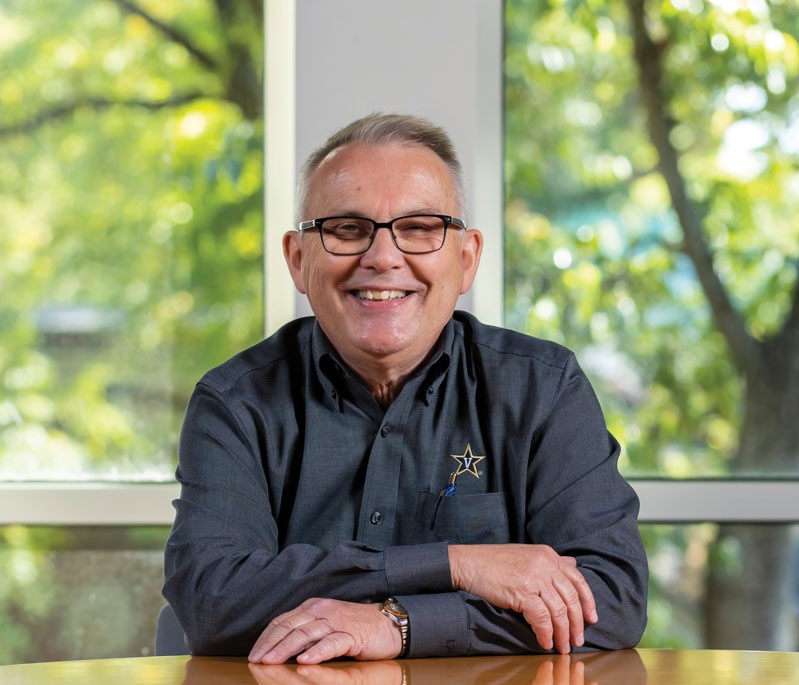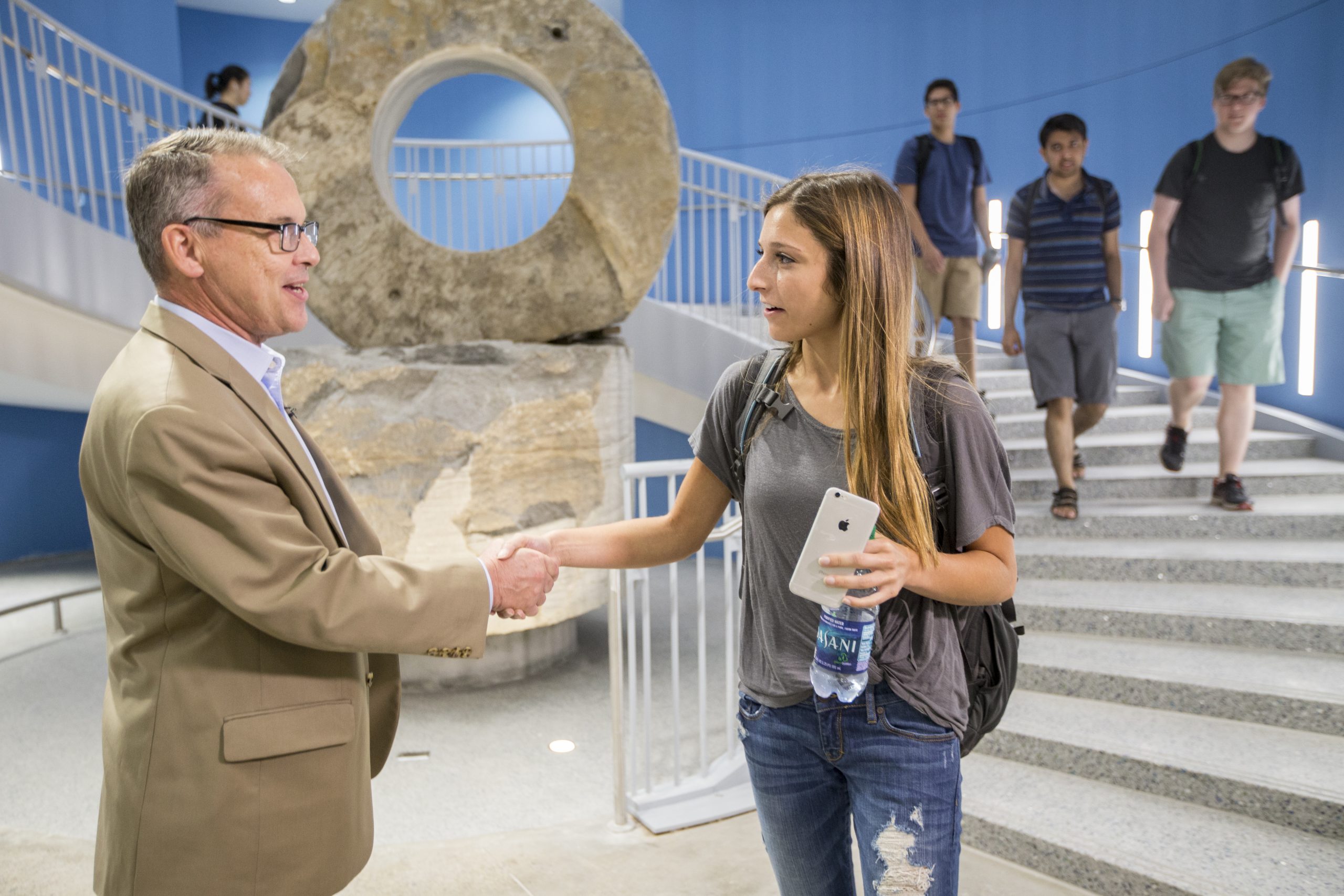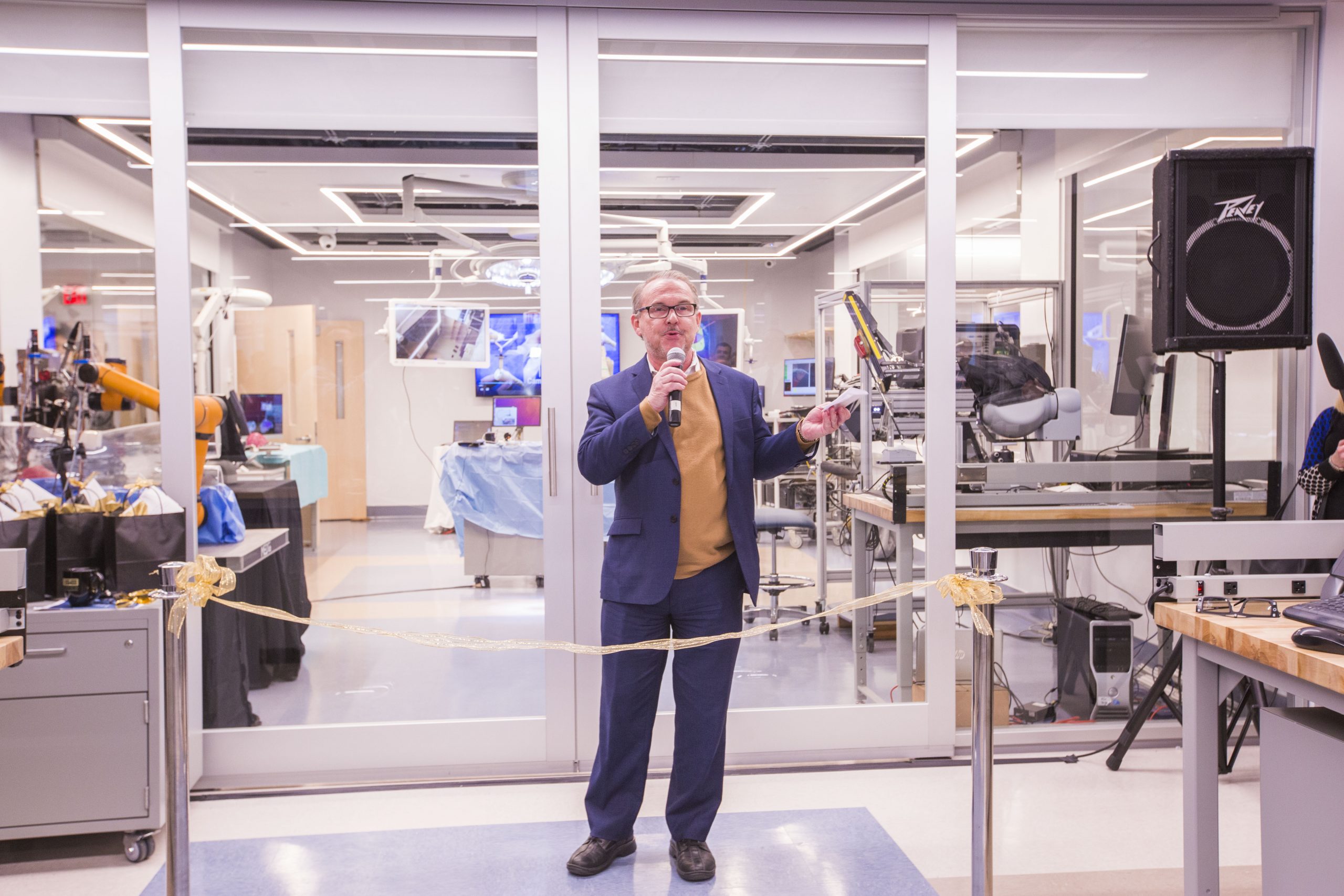Philippe Fauchet, the Bruce and Bridgitt Evans Dean of Engineering and professor of electrical engineering, will step down as dean, effective June 30, 2023, and will rejoin the school’s faculty in 2024 after a sabbatical. Under his leadership, the School of Engineering has grown in a number of areas, including the size of its faculty, research collaborations, academic programs, endowed chairs, faculty and student recruitment, the diversity of its undergraduate students, and the spaces on campus where innovative problem-solving can take place.

- What would you say is your greatest accomplishment as Dean? Well, it is tough to pick only one, so I will give you three. First, would be growing the size of the faculty in such a way that we can compete nationally and globally in specific research areas. We have hired the very best talent in selected areas so that we have the critical mass necessary for us to compete on that scale. Next, I would say we have made great strides in the diversity of our undergraduates and faculty—gender, race, and background. I am proud of that. Finally, and this is an important one, our faculty, from the newest hires to those who have been here for decades, are highly motivated to work on important problems where practical applications and progress are possible. They are interested in problem-focused research and partnerships to solve societal problems that affect millions of people worldwide.
- What do you feel is still left to do? I would say strengthening the focus on providing the best experiential education for our undergraduate students. What are the curriculum needs for tomorrow’s students? It may require bold changes, not tweaks. I think we are at an inflection point in engineering education. For example, all students—not just engineering students—should learn the lingua franca of data.

- What did you enjoy most about being Dean? Meeting and engaging with so many interesting alumni who love the School of Engineering! I enjoy strategic planning. And it has been personally satisfying to help students, faculty and staff members realize their dreams and aspirations.
- Was there a challenge as Dean you had not expected? The school is an enterprise of over 2,500 people. The challenge of an enterprise that size is what I would call bridging the gap. That is the gap between the budget and what it takes to reach and meet the aspirations of the faculty and staff. Also, to be honest, I would have to say the amount of paperwork!
- What are your plans for your sabbatical year? I’ve been very busy making sure the school is in the best shape possible so that my successor will be able to focus on the next steps for the school. So, I’ve not thought that much about it and certainly don’t have any concrete plans yet. I like to travel, so reconnecting with old scientific friends and making new connections, in the U.S. and abroad, seems appealing.

- How has your tenure as Dean shaped your focus as you return to the faculty? Frankly, research is a game best played by younger people. But I feel strategic planning and leadership is a game played well by more experienced (and yes, older!) faculty members. I am interested in what kind of strategic role I can play at Vanderbilt that would be useful to the university and perhaps beyond—on a national level. Also, after a decade as dean, I am interested in bringing what I’ve learned into the classroom.
- Do you have any advice for the next Dean? Be bold. Listen first, then develop bold plans together with the faculty and administration. Develop ‘mega’ support initiatives that will lead to achieving even greater long-term and far-reaching goals. Put people—students, faculty, and staff—first. And also, enjoy Nashville—it’s a fantastic city and region.